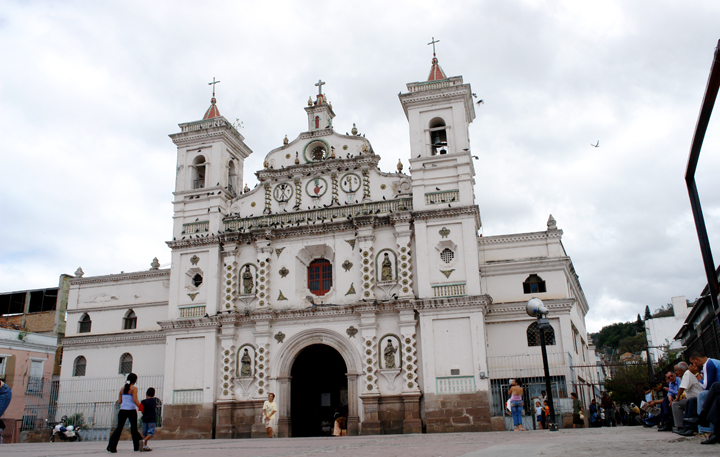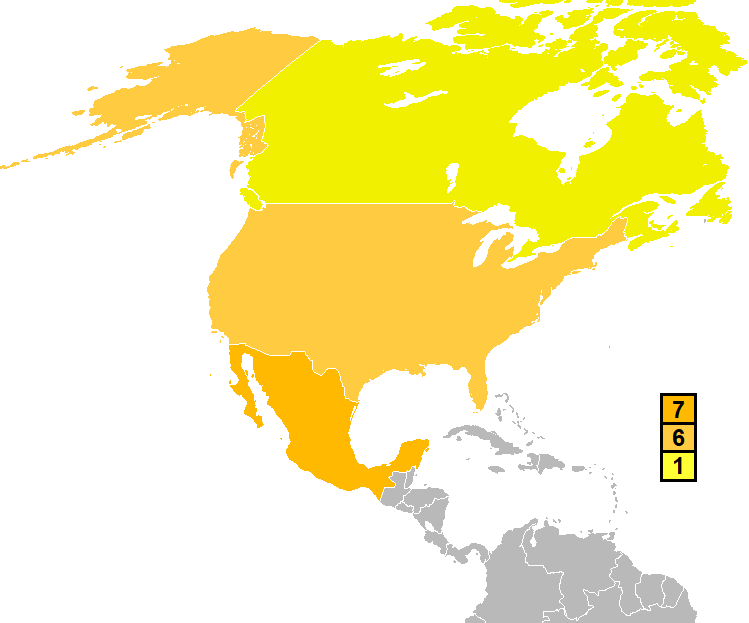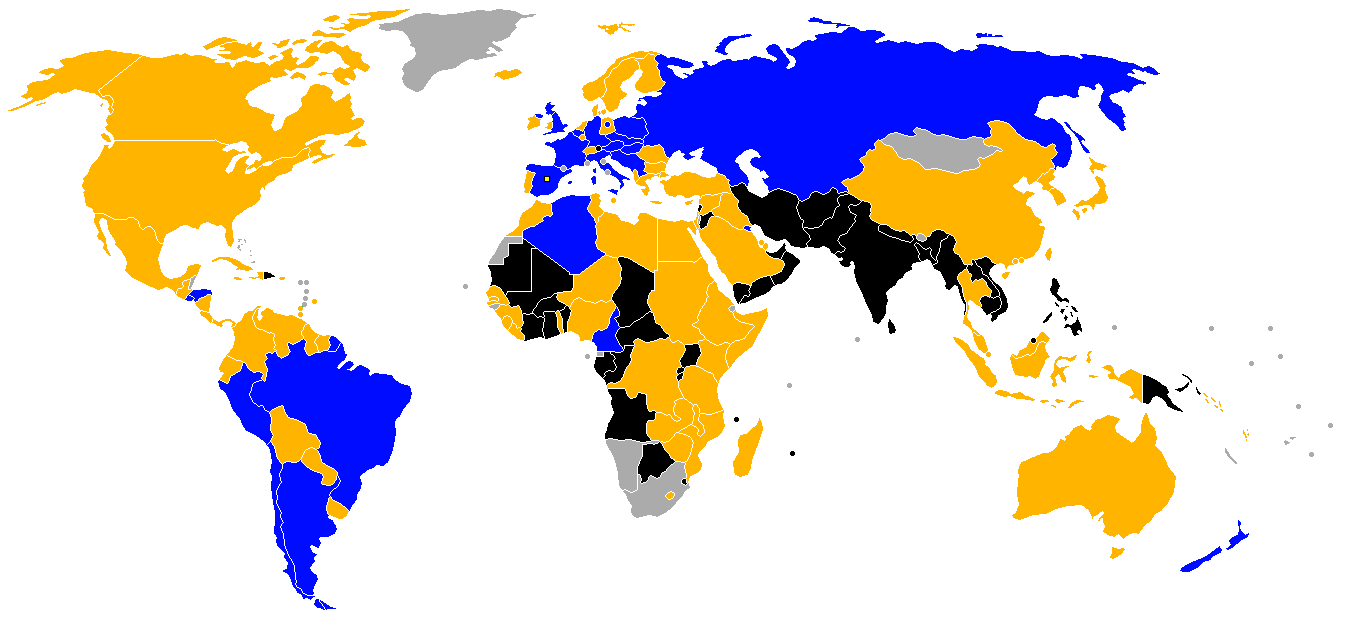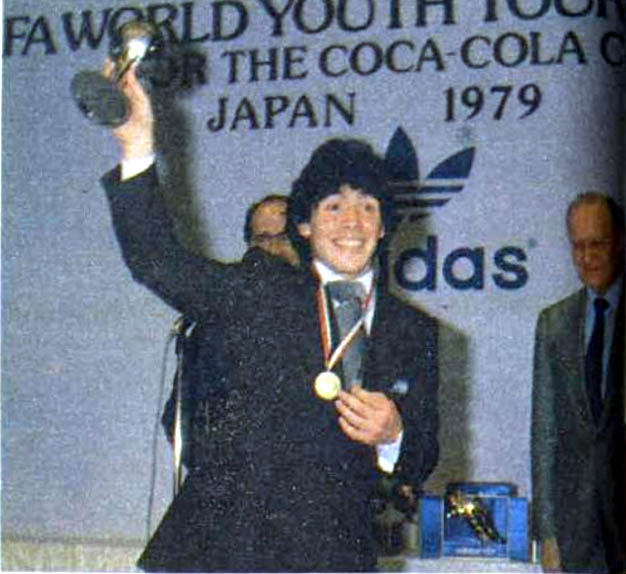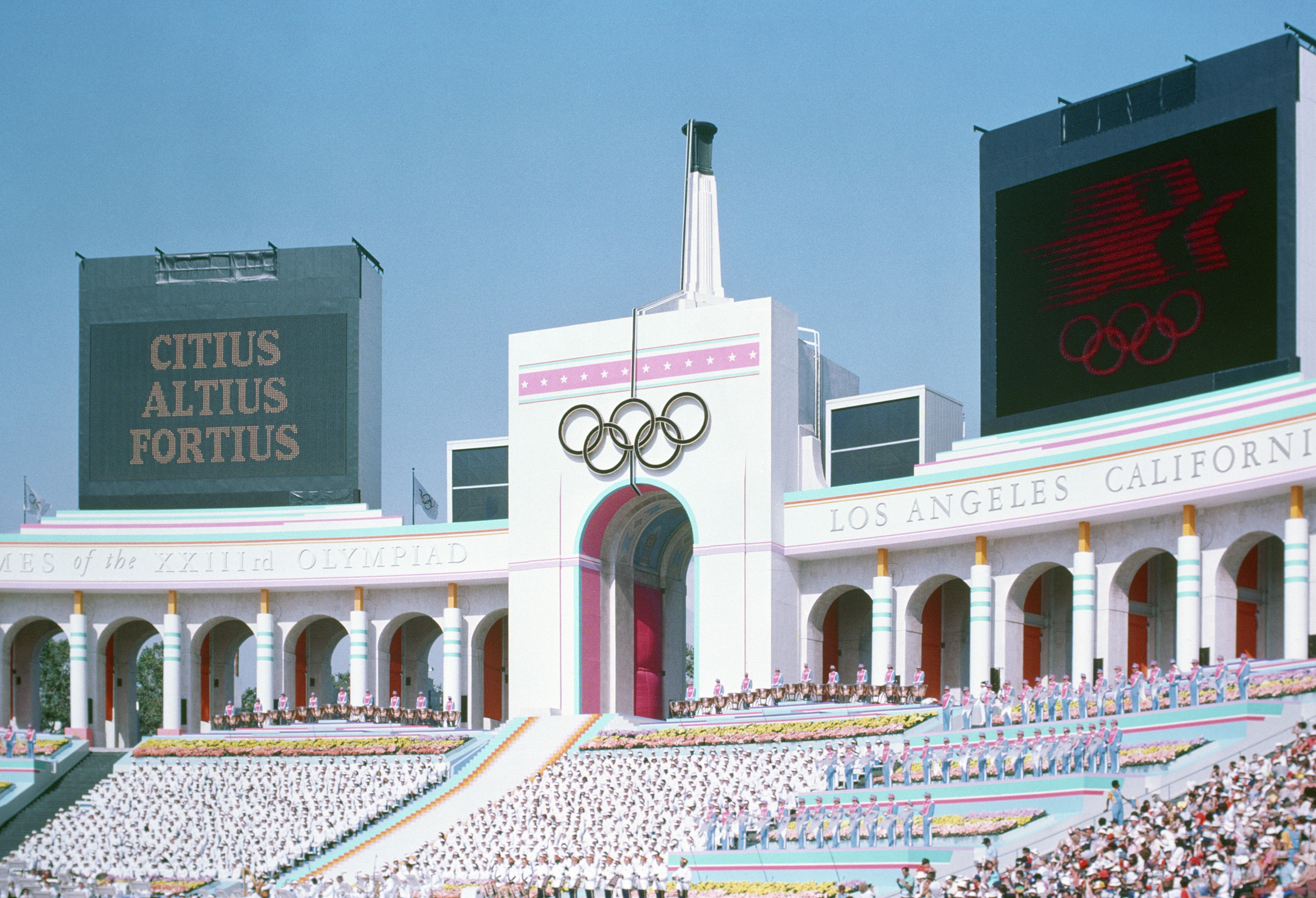|
Ian Bridge
Ian Christopher Bridge (born 18 September 1959) is a football coach and former professional who played as a defender. A former player for the Canada national team, he has coached the Canada women's national team among other teams. Club career Bridge was born in Victoria, British Columbia. He began his pro career in 1977 and played in the NASL with the Seattle Sounders from 1979 to 1983 and with the Vancouver Whitecaps in 1984, and MISL indoor soccer with the Tacoma Stars. Over six NASL seasons he played 124 games and scored 13 goals. Following the demise of the NASL Bridge played for Swiss club FC La Chaux-de-Fonds for two seasons when the club was in the Swiss league first division. Later in the Canadian Soccer League, he played for the Victoria Vistas (1990), Kitchener Kickers (1991), and North York Rockets (1991). Ian played his youth soccer with thLakehill Soccer Associationin Victoria BC, and has an annually awarded Youth Player "Inspirational" trophy named in ... [...More Info...] [...Related Items...] OR: [Wikipedia] [Google] [Baidu] |
Victoria, British Columbia
Victoria is the capital city of the Canadian province of British Columbia, on the southern tip of Vancouver Island off Canada's Pacific coast. The city has a population of 91,867, and the Greater Victoria area has a population of 397,237. The city of Victoria is the 7th most densely populated city in Canada with . Victoria is the southernmost major city in Western Canada and is about southwest from British Columbia's largest city of Vancouver on the mainland. The city is about from Seattle by airplane, seaplane, ferry, or the Victoria Clipper passenger-only ferry, and from Port Angeles, Washington, by ferry across the Strait of Juan de Fuca. Named for Queen Victoria, the city is one of the oldest in the Pacific Northwest, with British settlement beginning in 1843. The city has retained a large number of its historic buildings, in particular its two most famous landmarks, the Parliament Buildings (finished in 1897 and home of the Legislative Assembly of British Columbia ... [...More Info...] [...Related Items...] OR: [Wikipedia] [Google] [Baidu] |
North American Soccer League (1968-1984) , a former Division II league
{{disambig ...
The North American Soccer League may refer to: *North American Soccer League (1968–1984), a former Division I league *North American Soccer League (2011–2017) The North American Soccer League (NASL) was a professional men's soccer league based in the United States. The league was named for, but had no connection to, the original North American Soccer League. The later NASL was founded in 2009, and b ... [...More Info...] [...Related Items...] OR: [Wikipedia] [Google] [Baidu] |
Tegucigalpa
Tegucigalpa (, , ), formally Tegucigalpa, Municipality of the Central District ( es, Tegucigalpa, Municipio del Distrito Central or ''Tegucigalpa, M.D.C.''), and colloquially referred to as ''Tegus'' or ''Teguz'', is the capital and largest city of Honduras along with its sister city, Comayagüela. Claimed on 29 September 1578 by the Spaniards, Tegucigalpa became the country's capital on October 30, 1880, under President Marco Aurelio Soto, when he moved the capital from Comayagua. The Constitution of Honduras, enacted in 1982, names the sister cities of Tegucigalpa and Comayagüela as a Central District to serve as the permanent national capital, under articles 8 and 295. After the dissolution of the Federal Republic of Central America in 1841, Honduras became an individual sovereign nation with Comayagua as its capital. The capital was moved to Tegucigalpa in 1880. On January 30, 1937, Article 179 of the 1936 Honduran Constitution was changed under Decree 53 to establish Te ... [...More Info...] [...Related Items...] OR: [Wikipedia] [Google] [Baidu] |
Estadio Tiburcio Carías Andino
A stadium ( : stadiums or stadia) is a place or venue for (mostly) outdoor sports, concerts, or other events and consists of a field or stage either partly or completely surrounded by a tiered structure designed to allow spectators to stand or sit and view the event. Pausanias noted that for about half a century the only event at the ancient Greek Olympic festival was the race that comprised one length of the stadion at Olympia, where the word "stadium" originated. Most of the stadiums with a capacity of at least 10,000 are used for association football. Other popular stadium sports include gridiron football, baseball, cricket, the various codes of rugby, field lacrosse, bandy, and bullfighting. Many large sports venues are also used for concerts. Etymology "Stadium" is the Latin form of the Greek word " stadion" (''στάδιον''), a measure of length equalling the length of 600 human feet. As feet are of variable length the exact length of a stadion depends on the exac ... [...More Info...] [...Related Items...] OR: [Wikipedia] [Google] [Baidu] |
Canadian Soccer Hall Of Fame
The Canada Soccer Hall of Fame honours people and institutions for their contributions to Canadian soccer. It was founded in 1997 by the Ontario Soccer Association and was originally located in Vaughan, Ontario. As of 2019, the Canada Soccer Hall of Fame has inducted 114 players, 13 managers/coaches, 10 officials, and 40 builders as honoured members. Additionally, the Canada Soccer Hall of Fame has recognized 13 teams of distinction and seven organizations of distinction. After the Canadian Soccer Association Alumni Association was founded in 1987, the Soccer Hall of Fame was founded by the Ontario Soccer Association in 1997 in Vaughan. The new Canada Soccer Hall of Fame was launched in May 2017 under the direction of the Canadian Soccer Association in Ottawa, Ontario. All previously-inducted members of The Soccer Hall of Fame as well as a catch-up class of 17 legends were named to the new Canada Soccer Hall of Fame. Honoured members As of 2019, the Canada Soccer Hall of Fame ... [...More Info...] [...Related Items...] OR: [Wikipedia] [Google] [Baidu] |
Mexico National Football Team
The Mexico national football team () represents Mexico in international football and is governed by the Mexican Football Federation (). It competes as a member of CONCACAF. Mexico has qualified to seventeen World Cups and has qualified consecutively since 1994, making it one of six countries to do so. Mexico played France in the first match of the first World Cup on 13 July 1930. Mexico's best progression in World Cups has been reaching the quarter-finals in both the 1970 and 1986 World Cups, both of which were staged on Mexican soil. Mexico is historically the most successful national team in the CONCACAF region, having won eleven confederation titles, including eight CONCACAF Gold Cups and three CONCACAF Championships (the precursor to the Gold Cup), as well as two NAFC Championships, one North American Nations Cup, one CONCACAF Cup and two gold medals of the Central American and Caribbean Games. It is one of eight nations to have won two of the three most important foo ... [...More Info...] [...Related Items...] OR: [Wikipedia] [Google] [Baidu] |
CONCACAF Gold Cup
The CONCACAF Gold Cup ( es, Copa de Oro de la CONCACAF, french: Coupe D'or CONCACAF) is the main association football competition of the men's national football teams governed by CONCACAF, determining the continental champion of North America, which includes Central America and the Caribbean. The Gold Cup is held every two years. The tournament succeeded the CONCACAF Championship (1963–1989), with its inaugural edition being held in 1991. North American Football Union's members Canada, United States and Mexico are the only three nations to have won the tournament. History Championships before CONCACAF Before the Confederation of North, Central America and Caribbean Association Football (CONCACAF) was formed in 1961, association football in the region was divided into smaller, regional divisions. The two main bodies consisted of the Confederación Centroamericana y del Caribe de Fútbol (CCCF) founded in 1938 (consisting of Central America and most of the Caribbean) and t ... [...More Info...] [...Related Items...] OR: [Wikipedia] [Google] [Baidu] |
1982 FIFA World Cup
The 1982 FIFA World Cup was the 12th FIFA World Cup, a quadrennial Association football, football tournament for men's senior national teams, and was played in Spain between 13 June and 11 July 1982. The tournament was won by Italy national football team, Italy, who defeated Germany national football team, West Germany 3–1 in the final, held in the Santiago Bernabéu Stadium in the capital, Madrid. It was Italy's third World Cup title, but their first since 1938 FIFA World Cup, 1938. The defending champions, Argentina national football team, Argentina, were eliminated in the second round (finishing third and last in their group). Algeria national football team, Algeria, Cameroon national football team, Cameroon, Honduras national football team, Honduras, Kuwait national football team, Kuwait and New Zealand national football team, New Zealand made their first appearances in the finals. The tournament featured the first penalty shoot-out in World Cup competition. This was the l ... [...More Info...] [...Related Items...] OR: [Wikipedia] [Google] [Baidu] |
1979 FIFA World Youth Championship
The 1979 FIFA World Youth Championship, the second staging of the FIFA World Youth Championship, was held in Japan from 26 August to 7 September 1979. It was the first FIFA tournament played in Asia. The tournament took place in four cities — Kobe, Omiya, Tokyo and Yokohama — where a total of 32 matches were played, four more than in the previous edition due to the addition of a quarterfinal round in the knockout stage. Argentina won the trophy after beating holders Soviet Union 3–1, in a final held at Tokyo's National Stadium. Argentina fielded an attack-minded high-scoring team, averaging 3.33 goals per game. They were led by the powerful duo of Diego Maradona and Ramón Díaz, who were the tournament's best player and top scorer respectively. Between the two of them, they scored 14 of Argentina's 20 goals (70%). Qualification :1.Teams that made their debut. Squads For a list of all squads that played in the final tournament, see ''1979 FIFA World Youth Champion ... [...More Info...] [...Related Items...] OR: [Wikipedia] [Google] [Baidu] |
1984 Summer Olympics
The 1984 Summer Olympics (officially the Games of the XXIII Olympiad and also known as Los Angeles 1984) were an international multi-sport event held from July 28 to August 12, 1984, in Los Angeles, California, United States. It marked the second time that Los Angeles had hosted the Games, the first being in 1932. California was the home state of the incumbent U.S. President Ronald Reagan, who officially opened the Games. These were the first Summer Olympic Games under the IOC presidency of Juan Antonio Samaranch. The 1984 Games were boycotted by a total of fourteen Eastern Bloc countries, including the Soviet Union and East Germany, in response to the American-led boycott of the 1980 Summer Olympics in Moscow in protest of the Soviet invasion of Afghanistan; Romania and Yugoslavia were the only Socialist European states that opted to attend the Games. Albania, Iran and Libya also chose to boycott the Games for unrelated reasons. Despite the field being depleted in certain ... [...More Info...] [...Related Items...] OR: [Wikipedia] [Google] [Baidu] |
1986 FIFA World Cup
The 1986 FIFA World Cup was the 13th FIFA World Cup, a quadrennial football tournament for men's senior national teams. It was played in Mexico from 31 May to 29 June 1986. The tournament was the second to feature a 24-team format. Colombia had been originally chosen to host the competition by FIFA but, largely due to economic reasons, was not able to do so, and resigned in 1982. Mexico was selected as the new host in May 1983, and became the first country to host the World Cup more than once, after previously hosting in 1970. The World Cup was won by Argentina (their second title, after winning in 1978). Argentina was captained by the 25-year-old Diego Maradona, who played a large part in his team's success by scoring his " Hand of God" goal, as well as another voted "Goal of the Century", in the same quarter-final against England. These were two of the five goals that Maradona scored during the tournament, and he also created another five for his teammates. Argentina beat ... [...More Info...] [...Related Items...] OR: [Wikipedia] [Google] [Baidu] |
FIFA World Cup Qualification
The FIFA World Cup qualification is a competitive match that a national association football team takes in order to qualify for one of the available berths at the final tournament of the (men's) FIFA World Cup. Qualifying tournaments are held within the six FIFA continental zones, each organized by their respective confederations: AFC (Asia), CAF (Africa), CONCACAF (North and Central America and the Caribbean), CONMEBOL (South America), OFC (Oceania), and UEFA (Europe). For each World Cup, FIFA decides the number of places in the finals allocated to each of the zones, based on the numbers and relative strengths of the confederations' teams. As a courtesy, the host receives an automatic berth selection, as has happened with the immediate past tournament winner during much of the competition's history. All other finalists are determined on a standalone qualifying round achievement without regard to previous achievements. History The berths for the inaugural 1930 tourname ... [...More Info...] [...Related Items...] OR: [Wikipedia] [Google] [Baidu] |
_VICTORIA_FROM_JAMES'_BAY_LOOKING_UP_GOVERNMENT_STREET.jpg)
